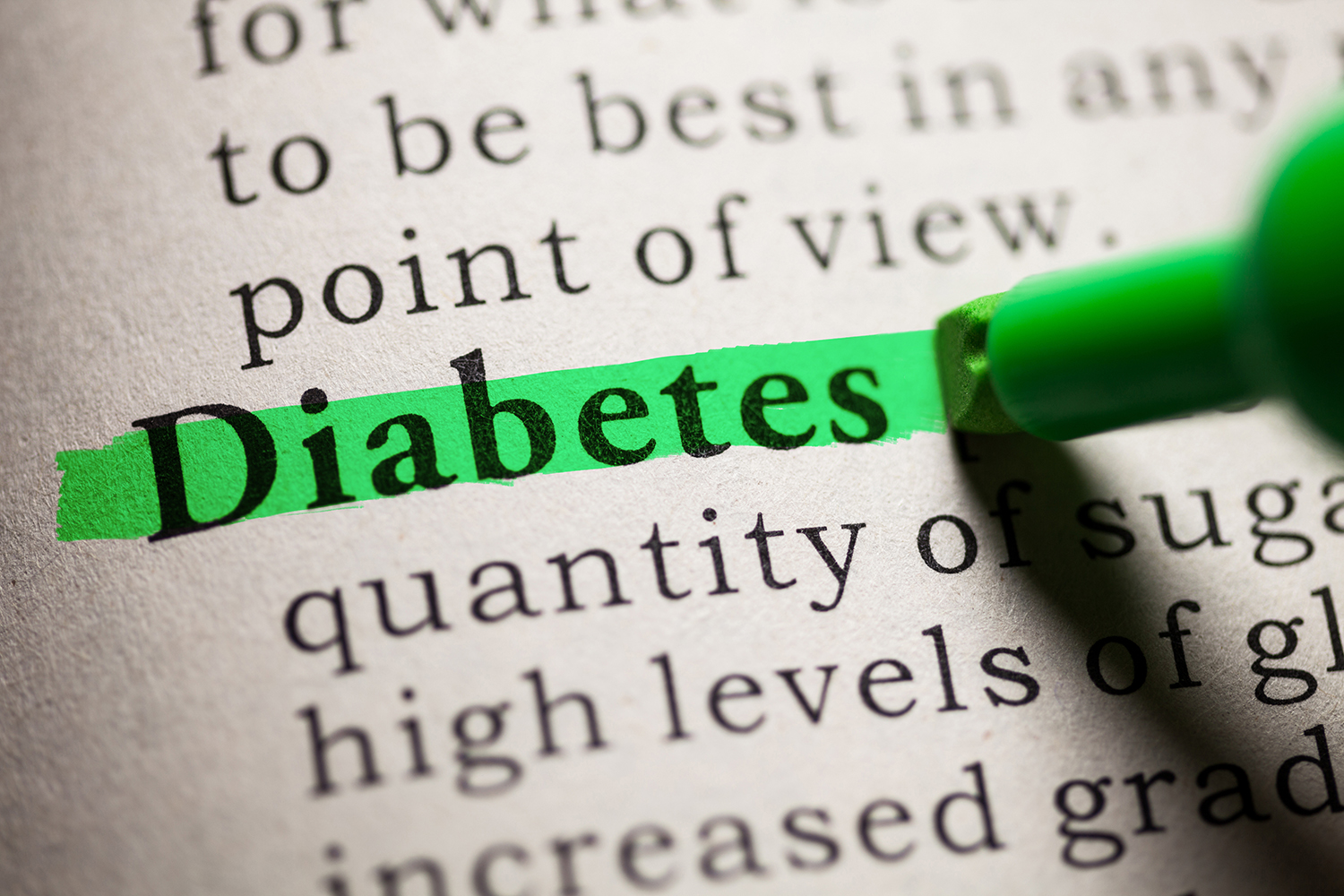How diabetes may be affected during times of hormonal changes, and how to manage both
• If you have diabetes, changing hormone levels during perimenopause, menopause, as well as during your menstrual cycle can make your body less responsive to insulin
• You may also become more prone to other symptoms
• Hormone treatment and lifestyle adjustments can help
Around 830 million people worldwide are living with diabetes – around 14% of the adult population [1]. While more men worldwide have diabetes than women, women have greater health risks associated with their diabetes and are less likely to receive treatment [2].
Type 1 or type 2 diabetes occurs when there is too much glucose in your blood owing to a problem with the hormone insulin. Type 2 diabetes is the most common type and accounts for about 95% of diabetes cases [1]. It occurs when your body does not make enough insulin or it does not utilise the insulin effectively. This means too much glucose remains in your blood, resulting in high blood glucose levels. If you have type 1 diabetes, your body cannot make enough insulin so you need daily administration of insulin.
What are the risk factors?
It is not yet known what causes type 1 diabetes, although family history can slightly increase your risk.
Risk factors of developing type 2 diabetes include your age and ethnicity (you’re more at risk if you’re white and over 40 or over 25 if you’re African-Caribbean, Black African, Chinese or South Asian [3]), being overweight and being physically less active. Your family history can also be significant – you’re two to six times more likely to get type 2 diabetes if you have a parent, brother, sister or child with diabetes [3].
RELATED: Menopause in ethnic communities
How do hormones affect diabetes?
Progesterone, estradiol and testosterone all play distinct roles in glucose metabolism and the low levels of these hormones increases risk of developing diabetes and can affect glucose control.
Estradiol can lower blood sugar by stimulating the transfer of insulin across blood vessel linings, enhancing insulin delivery to muscle, and boosting insulin sensitivity. Estradiol also can increase glucose uptake in muscle and adipose (fat) tissue, and can modulate genes involved in glucose metabolism; all of these effects contribute to the increased diabetes incidence during menopause, when estradiol levels are low [4].
Progesterone and testosterone are also important in regulating glucose levels. Low testosterone is associated with a greater risk of developing type 2 diabetes [5,6].
Women experience greater hormone fluctuations and body changes during their lifespan than men, and fluctuating and low levels of progesterone, estradiol and testosterone can cause blood glucose levels to spike and fall, which can make it more difficult to keep diabetes well controlled. Managing diabetes well is essential for your future health as it can help reduce the risk of complications, which include problems with your heart, feet, eyes and kidneys.
Some women with diabetes find it harder to control their blood sugar during the week before their periods, but studies on the influence of the menstrual cycle phases on glucose metabolism have given contradictory results [7].
High cortisol levels lead to an increase in blood glucose which then leads to more insulin needing to be produced from the pancreas. When progesterone levels are low, this further increases cortisol and then your body can become less sensitive to the effects of insulin.
If you already have a diagnosis of diabetes, unexpected changes in your blood glucose levels and fluctuating and declining hormones can make managing your condition during perimenopause and menopause more complicated.
What can I expect during perimenopause and menopause?
Your experience of perimenopause and menopause is unique to you, but if you have diabetes, you might notice some of these common effects:
Fluctuating blood sugar levels
The hormones estrogen and progesterone affect the way the cells in your body respond to insulin. This can lead to unexpected changes in your blood glucose levels so look out for unexplained highs and lows in blood sugar levels, especially if you’re taking insulin or tablets such as gliclazide or glipizide.
Weight gain
Many women find that metabolic changes cause them to gain weight during perimenopause and menopause. Some diabetes medications can also cause weight gain. Your doctor or diabetes nurse may need to review your dosage of insulin or diabetes medication.
Sleep problems
Perimenopausal and menopausal symptoms such as night sweats, muscle and joint pain and anxiety may disrupt your sleep. Chronic lack of sleep is associated with decreased glucose tolerance and insulin sensitivity [8]. Surprisingly, your bedtime can also impact your blood sugar control and your responses to food the next day – researchers at ZOE found that when participants in a study didn’t sleep well, they experienced big spikes in blood sugar after breakfast and those who had a later bedtime were less able to control their blood sugar the next morning, even if they slept in [9].
Infections
Perimenopause and menopause can increase your risk of urinary and vaginal infections, such as cystitis and thrush. When hormone levels fall, the tissues around your vagina and vulva can become more fragile and the natural balance of bacteria changes, leaving you more vulnerable to infections. These can be reduced by using vaginal hormones.
RELATED: Vaginal hormones: what you need to know
In type 2 diabetes, recurrent urine infections and thrush can be a side effect of medications called ‘flozins’ (SGLT2 inhibitors). Flozins may be part of your long-¬term type 2 diabetes treatment and can be associated with an increased risk of having urinary tract infections (UTIs).
Pain during sex
Over time, high blood sugar levels can damage the nerves in your vagina and cause your vaginal walls to become inflamed. Vaginal dryness is a common symptom during perimenopause and menopause, and the combination of these problems can make it hard to get aroused and achieve orgasm, and may also mean that penetration becomes uncomfortable or painful. If you’re experiencing vaginal dryness or soreness, vaginal hormones can be used safely at any age to maintain and restore lubrication and the stretchiness of your vagina.
RELATED: How do perimenopause and menopause affect my sex drive?
How can I manage my diabetes during times of hormonal changes?
Check your blood sugar levels more often
Falling levels of hormones can increase your insulin resistance, which means your blood sugar levels can be higher and more erratic. Keep a close eye on your glucose levels, a continuous glucose monitor is easier than frequent finger prick tests, for those able to access the technology. Testing will help pick up if symptoms such as hot flushes and heart palpitations are being caused by a hypo (low blood sugar levels) or by changing hormones.
Treatment adjustments
During perimenopause and menopause, you may need to adjust your treatment, so speak to your healthcare team about this. Some women find that they need to change their diabetes medication, in particular doses of insulin in the days before their periods when hormone levels are usually at their lowest.
Hormone treatments
Symptoms of hormonal changes are improved with being prescribed progesterone, estradiol and testosterone - as they replace missing hormones. Taking hormones can also help to reduce your risk of osteoporosis, cardiovascular disease, dementia, and depression. This is particularly beneficial if you have diabetes as you already have an increased risk of some of these conditions. Women who are prescribed hormones have improvements in their glucose and insulin levels, as well as improvements in cholesterol and blood pressure [10].
Vaginal hormones can be prescribed to relieve vaginal dryness and urinary symptoms, including reduce the frequency of infections such as cystitis and thrush.
Follow a healthy diet
Both diabetes and menopause increase your risk of heart disease and the risk of breaking your bones so consider any dietary improvements you can make. Improvements can include cutting down on refined and processed foods and increasing fruit, vegetables and wholegrains. Eating well can also help reduce insulin resistance and help you manage your blood sugar levels.
RELATED: How I manage menopause with diabetes
Keep active
Being active can help with blood sugar levels and boost bone strength. Exercise can also reduce the risk of heart disease and stroke.
RELATED: Exercising during perimenopause and menopause
Vitamin D
Vitamin D can improve bone health and insulin sensitivity [11]. UK government guidelines recommend that everyone takes 10mcg of a vitamin D supplement daily in the autumn and winter months [12]. However, vitamin D needs can vary significantly and, in the UK and many other countries, achieving adequate Vitamin D levels through sun exposure alone is challenging, which makes supplementation throughout the year beneficial for many.
Remember your health checks
Everyone with diabetes should get certain important health checks every year, including those that check your average blood sugar levels, blood pressure, cholesterol and screening to check the health of your eyes and feet.
Make sure you have these as they are important for picking up any complications early and managing your long-term health. Before having a medical appointment, write down any symptoms you are experiencing so you can discuss the impact they are having with your clinician.
Resources
Diabetes UK: menopause and diabetes













